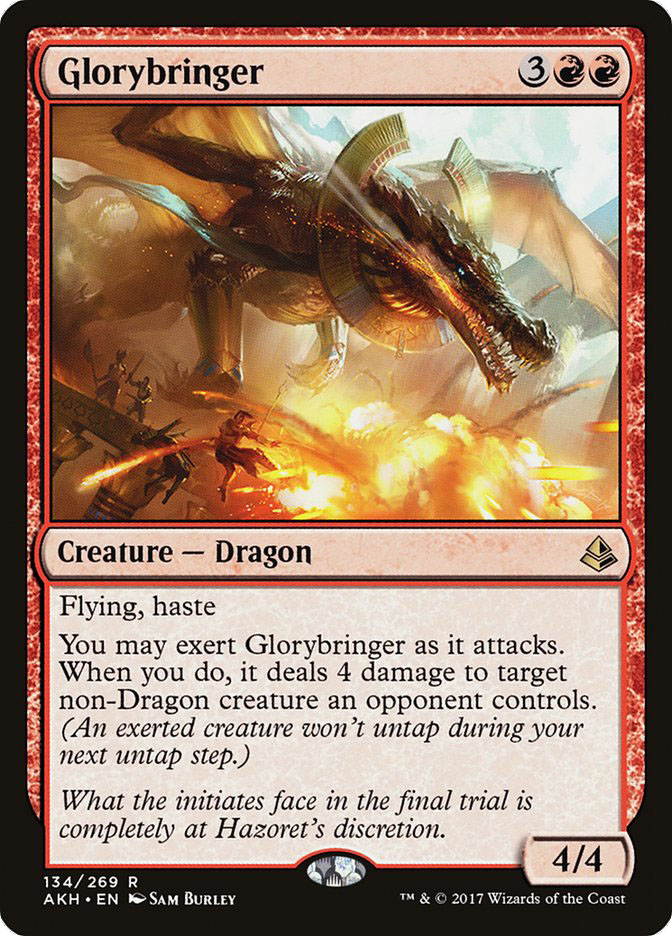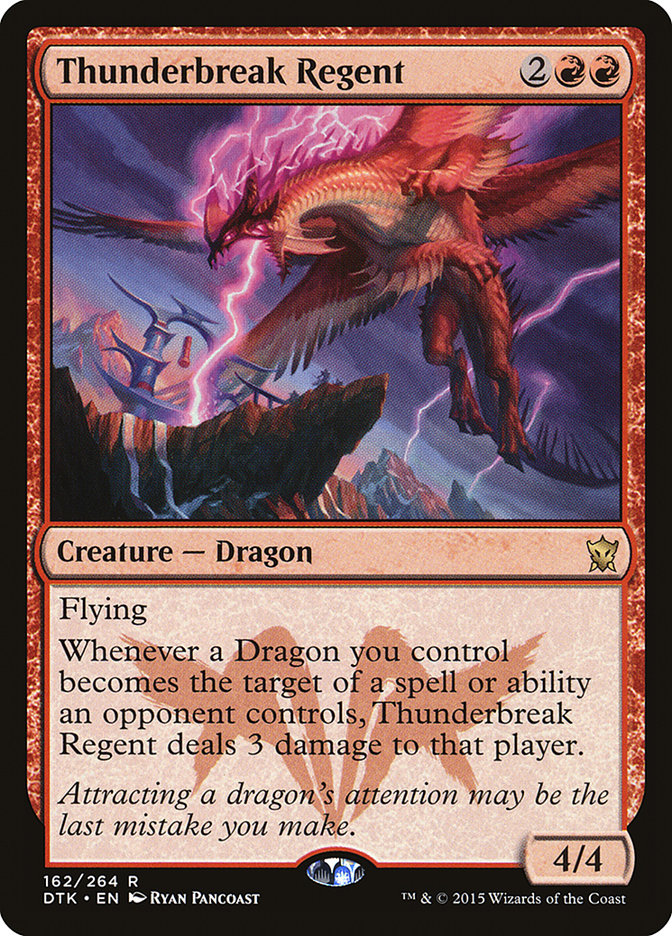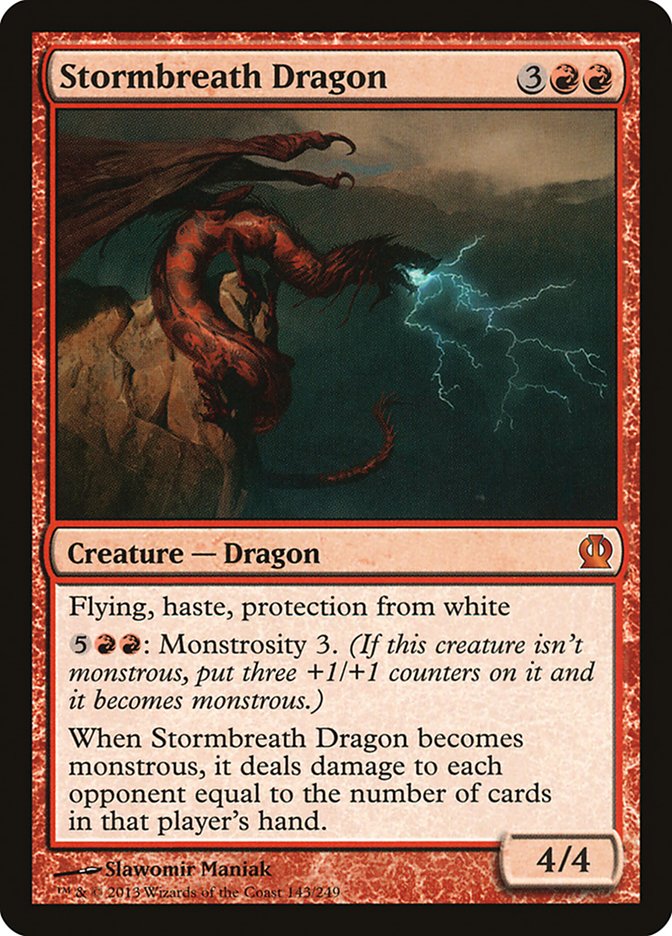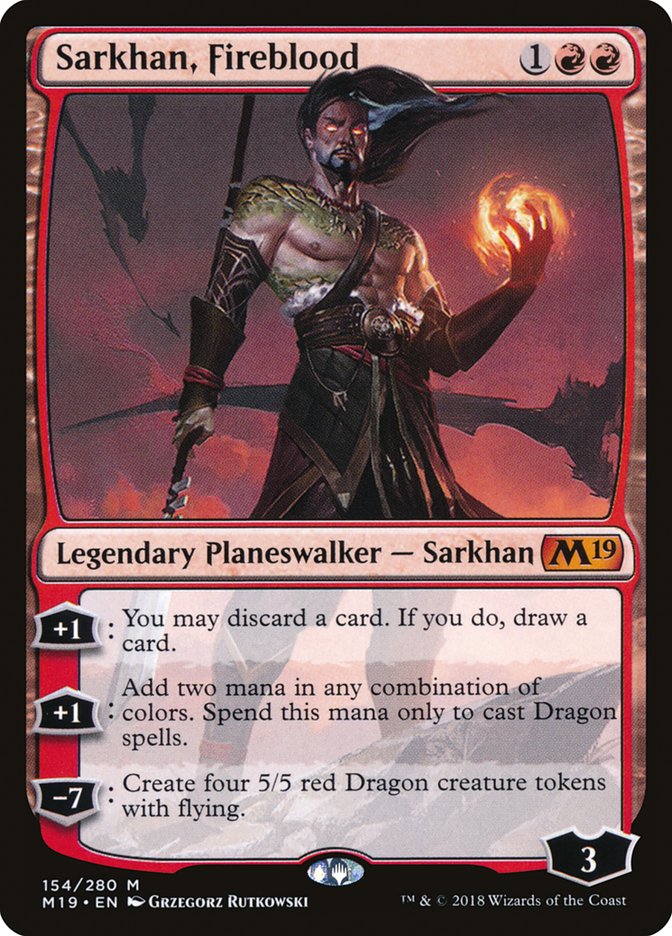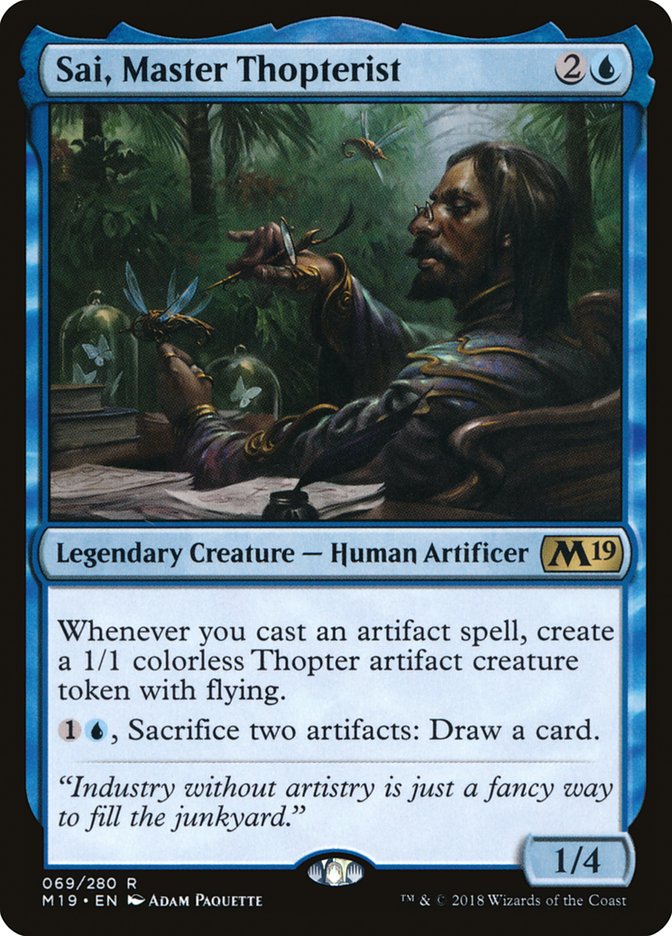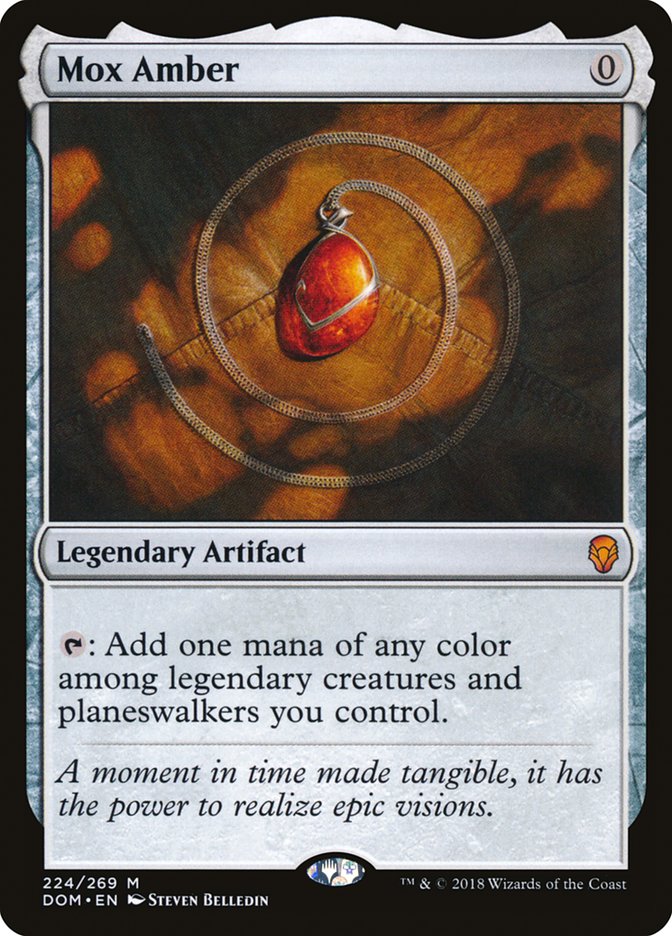We live in the information age. Especially when it comes to playing Magic:
the Gathering. There is so much information about the game out there for us
to consume. Decklists are posted online frequently from both live
tournaments and Magic Online events. Tons of articles get written about the
game every day. Every week there is new information to read and digest, and
we are happy to do so, because we love this game so much.
But there are consequences to having all of this information so readily
available. It can get to the point where we are so informed on what is
happening in Magic right now, that nothing surprises us anymore. This is
almost even the goal for those of us who take the competitive scene very
seriously. We want to be so informed about the game that when we go to a
tournament, we will know as much as we can so that our decision can be as
informed as possible.
For example, I’d say it’s pretty easy for me to determine what deck I’m
playing against from their turn one play a very high percentage of the
time, no matter what format. As soon as they make their first play, I
usually know what archetype they are piloting, what my plan is against
them, and how I need to play in order to enact that plan. I would say that
this is true for most tournament players. We are so well equipped to handle
what we are expecting to see.
So today, I want to talk about the unexpected. The rogue decks. The decks
that have your opponents pick up your cards and read them for the second
time. These decks gain a lot of equity when your opponents don’t know
exactly what is going on. Everyone going into a Modern event is going to
know what they need to do in order to beat Tron, or Jeskai Control, or
Humans. And sure you might be happier to play against some of these decks
than the others, but at least you’ve likely played the matchup before and
have a decent understanding of what is important.
When you’re playing against a deck that you’ve never seen before, all of
that goes out of the window. All of the sudden, you’re in the dark when it
comes to making a lot of key decisions, and your opponent is likely much
more informed about what is going in that you are. That can be a huge
advantage.
There were a few key results put up recently that do an excellent job of
illustrating this point.
Creatures (10)
Planeswalkers (6)
Lands (24)
Spells (20)
Sideboard

This past weekend, Ozzy Kelly took down the SCG Philadelphia Modern Classic
with his new take on Skred Red. Skred Red decks have never really settled
on what the best “finishers” are in the deck, but Ozzy might be really onto
something here.
While this may just look like a list of the three most impactful Dragons
that we’ve had in Standard recently, these Dragons have more to offer in
Modern than we might expect. These Dragons are surprisingly resilient to
the common removal spells we see in Modern. Lightning Bolt doesn’t work
against any of them, and Fatal Push can only hit Thunderbreak Regent, which
is then going to get you for some damage either way.
This deck appears to be the perfect home for Sarkhan, Fireblood. Sarkhan
allows you to cast your big Dragons ahead of schedule, and allows you to do
so while still being able to interact with your one mana spells in Skred
and Lightning Bolt. Sarkhan also represents a pretty big threat to control
decks, because it is a planeswalker that needs to be answered somehow
before it ultimates.
If you’re looking to learn more about Sarkhan, Fireblood, Todd Stevens has
an article all about Sarkhan going up this Thursday that I highly suggest
you check out. Todd loves his brews, and I’m sure there will be plenty of
interesting new decks to check out there if you’re looking to play
something unexpected.
Creatures (8)
Lands (18)
Spells (34)

Luke Feeney just took a very interesting deck to a Top 8 finish at the SCG
Philadelphia Standard Classic. We saw a similar deck see a lot of play when
Aetherflux Reservoir and Paradoxical Outcome were first printed in Kaladesh, but the deck was missing a few pieces and not really
able to hold its own in the format.
Now that we have a few extra pieces of this crazy puzzle, we might actually
be onto something.
Sai, Master Thopterist gives this deck a ton of new angles that it didn’t
have access to before. Very often while playing this deck, you don’t have
quite enough gas to combo kill them with an Aetherflux Reservoir
activation, but with Sai, all of the artifacts that you are casting and
potentially re-casting after Paradoxical Outcome net you a 1/1 Thopter
token. These tokens can add up really quickly to make a reasonable air
force against a control deck, or even just buy you a lot of time against an
aggressive deck.
I’m sure Luke Feeney was familiar with all sorts of unique gameplans that
his deck had access to in particular matchups, and I’m even more confident
that most of his opponents didn’t really have a good idea of what they were
supposed to be doing against his deck. They might be ready for a bunch of
1/1 flyers but then die to an Aetherflux Reservoir activation, or they
might bring in some artifact hate only to die to all of the fliers. I’m
sure there were many of games that Luke played that could have been
winnable for his opponents, but they were unsure of what they were supposed
to be doing here and lost equity because of it.
There’s also another take on this deck that has even more angles to it!
Creatures (12)
Lands (20)
Spells (28)

This deck takes the alternate win con to another extreme with the
introduction of Metalwork Colossus. There are generally enough random
artifacts floating around the battlefield that the 10/10 can be cast for a
reasonable cost, and that big of a creature can definitely be a pain for
many decks in the format to contend with. Since this deck has so many
angles of attack, I’m sure it is very difficult to play against.
Creatures (22)
- 3 Simian Spirit Guide
- 2 Ulamog, the Ceaseless Hunger
- 2 Endbringer
- 4 Reality Smasher
- 4 Thought-Knot Seer
- 4 Matter Reshaper
- 3 Walking Ballista
Planeswalkers (1)
Lands (25)
Spells (12)
Sideboard

It’s not every day that we get to see new things in a format as old as
Legacy, but the banning of Deathrite Shaman and Gitaxian Probe has done a
lot to mix things up. The dust is only beginning to settle, but we’ve
already started to see a new contender pop up with several good results in
the past couple of weeks, and that contender is Eldrazi Post.
A couple of weeks ago, Joseph Santomassino won the SCG Worcester Legacy
Classic with Eldrazi Post. Since then, Eldrazi Post went 7-0 in the Magic
Online Legacy Challenge, and put two more copies in the top 16 of the SCG
Philadelphia Legacy Classic. So this deck may not be rogue for long, but
I’m sure that it gained a lot of equity over the last couple of weeks from
players being inexperienced against the archetype and not really
understanding what they needed to be doing against it.
This deck looks similar to traditional Colorless Eldrazi lists that we’ve
seen before in Legacy, but it has the ability to go much bigger with the
Cloudpost manabase. Its also utilizing Trinisphere in a very powerful way,
with both Simian Spirit Guide and Grim Monolith as a way to power it out on
the first turn when paired with a two-mana land.
***
I’m always looking for ways of getting an edge in Magic through
deckbuilding and deck selection. The recent success of these rogue decks
has been really exciting for me to see, and I believe goes to show that you
can utilize an information advantage against your opponents to good
success.


